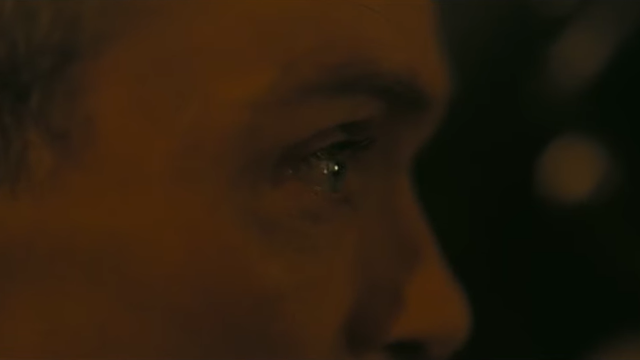To me, the most interesting thing about the discourse around Oppenheimer is how few people are personalising their reaction to it. I find the vast majority of conversation about it (aside from, naturally, whether or not it’s fun to watch) is about either its space in the biopic genre or its political text, neither of which are exactly emotionally specific, no matter how much anger the latter can inspire. Nobody is talking about how they can relate to the protagonist. I find this particularly interesting because Oppenheimer strikes at a particularly timely question: what is it that a young left-winger has to fear? I went into the film deliberately not learning anything about the real-life man, and I was equally as startled as him when the tragic decision that led to a lifetime of persecution and punishment wasn’t developing a weapon of mass murder, it was partying with Communists.
On a political level, this feels true. Us lefties sure love our finger-pointin’, and we can bring it on each other with the same level of intensity as our mutual enemies. But politics isn’t just about who’s right, but who has the power, and it tends to be the people in charge of atom bombs, movie studios, and publishing houses that end careers, not the hippies or scientists. One of the fascinating things about so-called ‘cancel culture’ is how it only really affects people who let it affect them – who deliberately withdraw works in the face of criticism – and anyone who really wants to ends up clawing their way back somehow.
I recall back in 2013, a blogger known as Requires Hate (short for the blog’s full title, Requires Only That You Hate) was writing infamously brutal reviews in which she combined histrionic anger with vividly violent rhetoric, calling for the mutilation of bad writers. Rumours abounded that she was directing abuse at men and women of colour, invading spaces and unleashing her abuse, fracturing communities, changing her name, and moving on. She was later outed as up-and-coming fiction writer Benjanun Sriduangkaew, seeming to cause the implosion of a promising career… except if one looks her up now, she’s still comfortably publishing short stories, novellas, and a novel. She’s even still writing abrasive posts on social media.
A more recent example is Ana Mardoll, who skyrocketed into his fifteen minutes of fame with a “reading is ableist” tweet – a slightly unfair reading of a comment that was still kind of silly – which led to the revelation that Mardoll is a nepotism hire at Lockheed Martin, which made his mixture of (again) abrasiveness and ‘smol bean’ posting look remarkably hypocritical. And yet, look him up – he’s still blogging away now as if nothing happened. He even has a canny reversal of Oppenheimer’s situation; our cinematic figure of history was a weapons creator ‘undone’ by his connection to leftists, whilst Mardoll is a leftist ‘undone’ by his connections to weapons creators.
The fact of the matter is, it’s the right-wingers who hold power, at least in America; they’re the ones who paid Oppie to build the bomb, and they’re the ones who can put him under the lights.
Oppie’s fear of the apocalypse is, at least within the context of the film, perfectly reasonable (I’m given to understand the real guys figured out pretty quickly it was unlikely they’d blow up the whole world). His fear being evil – of personifying evil – is much less of a threat than he thinks it is. Prison is the real threat; getting fired is the real threat; getting killed is the realest threat. Being evil is something that it turns out anyone can survive, given enough willpower. Being a criminal is what requires intelligence and guile. Perhaps this is why so many examples of real-life evil come off both blundering and cunning; smart enough not to do anything that would actually get them killed, but also unwilling to face any actual consequences and learn from them.
(Christopher Nolan is known for a more conservative worldview, and this is expressed through Harry Truman here – committing great and consequential evil with no fear)
This ties into the more universal arc of the film. When you’re young and neurotic, you can live in fear of the consequences of your actions, and you can end up creating this image in your mind for what they are – certainly, Oppie is haunted by visions of the apocalypse. The problem is you can become so preoccupied with what you can imagine that you get blindsided by what you can’t. Imposing your will on the world is one form of controlling it; imagining disaster is another, and just as subject to failure. In a way, Oppie ends up suffering both the anxiety of what’s happening to him and the guilt of getting away with something else at the same time. When you’re young, you’re afraid you’re gonna get punished for doing what you want to do; when you get old, you do get punished, but by something outside your universe entirely.


